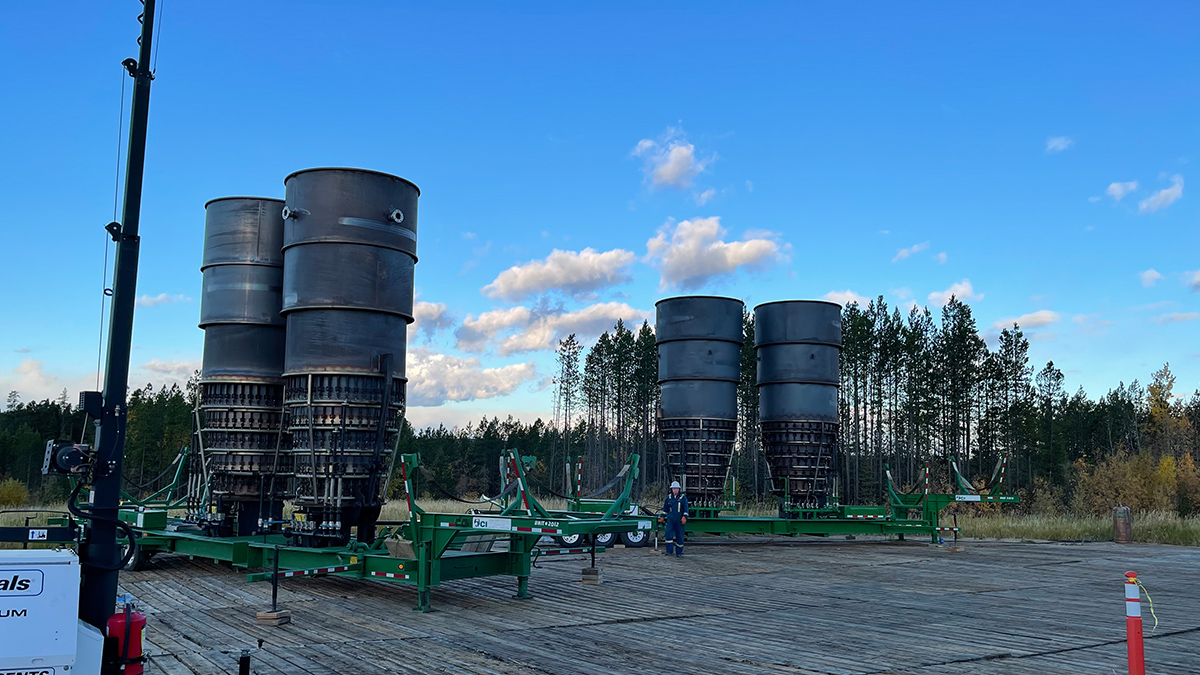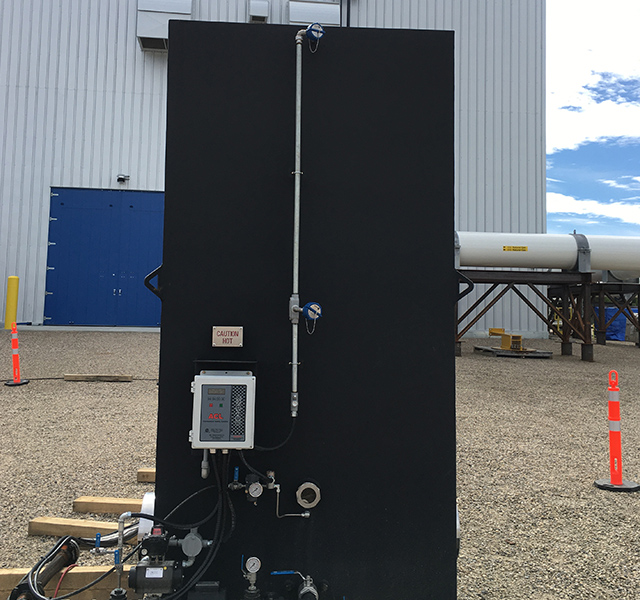Nov 7, 2025
Methane reduction technology will reduce TC Energy GHGs
Posted by TC Energy
A new application of an existing technology has been tested and will be implemented by the Coastal GasLink Facilities Engineering team to reduce methane emissions on the project’s compressor and meter stations. Using Enclosed Vapour Combustors (EVCs) will further Coastal GasLink’s ability to reduce global greenhouse gases (GHGs), and once fully implemented on Coastal GasLink, could be applied across TC Energy’s footprint.

"The BC Oil and Gas Commission recently instituted more stringent regulations on methane emissions applicable to our compressor and meter stations design and our team welcomed the challenge of assessing all technologies available in the industry. This analysis and selection process was performed through multidisciplinary sessions with subject matter experts across the company,” explains Marieli Romero, Coastal GasLink Pipeline and Facilities Engineering Manager.
Methane is one of the most impactful GHGs but EVCs break methane down.
“In the simplest terms, an EVC is a telephone booth-sized box with burners that convert methane into water vapour and CO2 – which is much less impactful than methane – while protecting the safety of our technicians,” says Anupam Gupta, Facilities Engineer for Coastal GasLink.
In order to use EVCs on compressor dry gas seal vents and pneumatic devices such as gas hydraulic actuators, TC Energy worked on a pilot program with an EVC manufacturer, with funding provided by Natural Resources Canada and Alberta Innovates through PTAC’s CanERIC program and TC Energy’s Technology Innovation Management Office (TIMO).
“This spring, we installed two modified EVC units on an operating NGTL System compressor station. Representatives from both the University of Alberta and Saskatchewan Research Council were on site during the testing period to measure the effectiveness of the technology. All tests revealed that the EVC is at least 99.6% efficient in converting methane into water vapour and CO2, reducing our overall CO2e GHG emissions, which is a fantastic result. It was also proven that the EVC had no negative effects to the existing facility operations,” reports Anupam.
“Innovative, sustainability-focused applications of technology like the EVC have the potential to deliver tremendous value for our company,” says Mike Procee, Manager of TIMO. “We’re thrilled to hear the results and proud to have been a partner in the project.”
With proven EVC effectiveness, Coastal GasLink facilities will have these units installed on the compressor dry gas seal vents and automated valve actuators during construction.
Grande Prairie-area methane reduction incinerators piloted
Similar to EVCs, incinerators are a tool to help break down methane into water vapour and CO2.. Mobile incinerators can be used for larger methane releases such as pipeline blowdowns, a procedure used to empty natural gas from a pipeline system to allow for safe maintenance work.
Four mobile incinerators were recently piloted at an NGTL pipeline section located near Grande Prairie with results indicating a reduction of approximately 2,000 GHG tonnes.
Funding to pilot the incinerators was provided by CanERIC. With the successful use of incinerators near Grande Prairie, we’ll look to pilot this technology again next year and have results verified by a third-party,” explains Ana Villarreal Escudero, Project Manager for the Canada Gas Operations, Engineering and Projects Emissions Management team.
“Not only does this technology reduce methane emissions, it also helps reduce carbon-related costs for the company,” she adds.
The incinerators are also beneficial as they can be moved to pipelines along TC Energy’s footprint and be used to minimize emissions released during necessary maintenance activities.
“Safety is ensured with a fire suppression skid onsite at all times, matting provides stability and protects the ground from heat, and the blowdown is monitored at all times by technicians,” says Ana.
“Our technicians at the incinerator pilot had positive feedback, noting that the incineration was executed smoothly and completed in less time than anticipated,” says Alison Butts, Interim Manager for Wildrose Pipeline Team.
With TC Energy’s ongoing commitment to emissions reduction, additional developments to support sustainability can be anticipated in the future.
Learn more about TC Energy’s plans to reduce emissions in the 2021 Report on Sustainability and GHG Emissions Reduction Plan.



